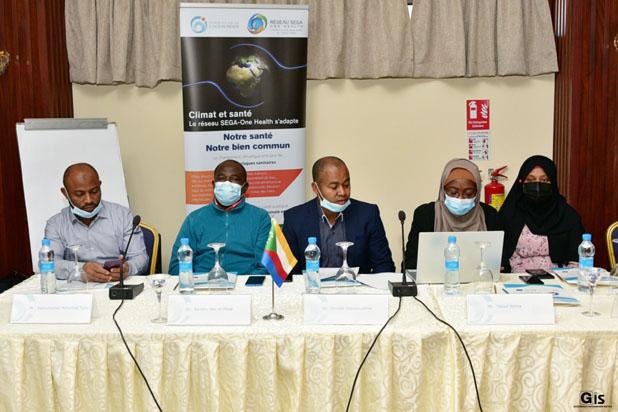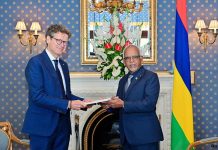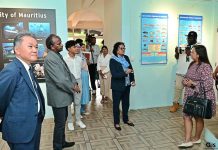Africa-Press – Mauritius. A regional workshop focusing on climate-sensitive infectious diseases and based on the theme, ‘Vectorial risks, climate change and health”, kickstarted this morning, at the Pearle Beach Resort & Spa in Flic-en-Flac.
Local and regional experts in the fields of entomology and the epidemiology of transmission diseases vector, environment and meteorology are attending the workshop. The Ambassador of the EU in Mauritius, Mr. Vincent Degert, was present on the occasion.
This activity is organised by the Health Monitoring Unit of the General Secretariat of the Indian Ocean Commission (IOC), which coordinates the regional network “SEGA – One Health” supported by the Agence française de développement (AFD) and the European Union (EU).
The four-day regional workshop aims at improving knowledge in the field of climate-sensitive infectious diseases and syndromes as well as to make an initial assessment and improve the monitoring indicators that were defined last year.
In addition, the workshop seeks to reinforce effective epidemiological surveillance. In his address, the EU Ambassador said that climate change is creating both an environmental crisis as well as a sanitary crisis. Mr.
Vincent Degert emphasised that health matters remain at the core of the EU’s agenda and stressed that the EU is collaborating with all member states to provide assistance to vulnerable states in the Indian ocean region to prepare them to address these issues.
He stated that it is crucial and urgent to intervene with the necessary measures on all fronts, through bilateral and regional actions. Furthermore, Mr.
Vincent Degert lauded the undertaking of the initiative, which he highlighted, will undoubtedly attain its set objectives through its integrated approach.
As for the General Secretary of the IOC, Mr. Vêlayoudom Marimoutou, he spoke of the consequences of climate change on how vector-borne diseases evolve and propagate.
He underlined the importance of elaborating adaptation strategies to address vector-borne health threats such as chikungunya and dengue fever, amongst others.
He recalled that the Indian Ocean region is the third one to be the most affected by the impacts of climate change, and observed that the workshop seeks to generate a global approach for an enhanced epidemiological surveillance and monitoring in the wake of new challenges.
Besides, the Deputy Director of the AFD for Mauritius and the Seychelles, Mrs. Sadna Ammearally-Nistar, stated that the workshop is an opportunity to exchange views and knowledge on epidemiological surveillance. She underlined that the suggestions of the experts participating in the workshop will be beneficial for both the local and regional context.
For More News And Analysis About Mauritius Follow Africa-Press







